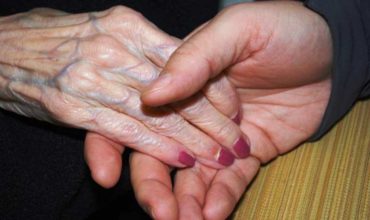This blog is the second in a two part series on fixing the communications between Older Children and Older Adults to have a better outcome in both parties’ lives. It provides a case study of typical intergenerational communications and how they can be taken up a notch to have a better impact on the lives of the adult children and aging parents involved.
Let’s take the situation of Lisa and her Dad, John. Lisa is in her mid-fifties, married, and has one teenager still at home and two in college. Lisa works full time outside the home. Her Dad lives about an hour away from Lisa and her family in a condo he owns. John is in his mid-eighties and was widowed two years ago. Lisa has one sibling, a younger brother who lives across the country. John’s in pretty good health, but he has become increasingly frail over the past six months and seems to have lost a lot of weight. Lisa is worried about her Dad, but with her other responsibilities, it’s hard for her to get to John’s home more than once per week.
Over the past week or two, Lisa has concluded that John is not eating well and that’s the cause of his weight loss. Every time she visits, she brings a load of groceries and meals she’s cooked at home. Ms. Fixit to the rescue. Yet, on subsequent visits, the food is pretty much right where Lisa left it. She’s frustrated because, “No matter what I do, Dad won’t eat.” When she begs him to eat, John gets angry and tells Lisa that he’s just not hungry. The situation escalates and ends with Lisa storming out of John’s home in tears.
What if Lisa had stopped for a moment before her Ms. Fixit instincts kicked in? Instead of jumping right in to fix what she saw as a “problem,” Lisa might have talked with John about how he was doing. Had she done so, she would have learned that John was very worried about his finances. He was afraid that he was going to outlive his money, and as a result, John had decided that he could get by on less. The last thing that John wanted was to be a burden on Lisa and her brother. So when Lisa starting bringing food to John, he felt guilty because exactly what he feared seemed to be coming true. He felt that if he didn’t eat much of the food that Lisa brought, maybe she’d stop bringing it, and, by being less of a burden, he would feel less guilty.
Had Lisa just asked the right questions and really listened to John’s answers, she might have come up with another way to solve the problem. In any event, by allowing John to participate in the solution, she would have allowed him to preserve some of his independence and feel more in control of his situation. And Lisa herself likely would have felt less stressed and less frustrated.
Of course, it’s possible that John wouldn’t have shared his fear with Lisa directly, but Lisa might have included John in identifying the problem and trying to solve it. Even if that approach failed, maybe Lisa could have arranged for some of John’s friends to invite him over for dinner so that he would have the social interaction and not feel as though he were imposing on his daughter.
For John’s part, he could acknowledge, at first to himself and later to his daughter, just what was actually worrying him. He could have talked the situation over and perhaps asked Lisa to recommend her friend, the daily money manager, to set an appointment and come discuss rearranging his finances to alleviate his worry about outliving his money.
By communicating clearly and honestly with his daughter, he could have saved her stress, helped his own anxiety by voicing his concerns, and spared making his daughter “guess” what his predicament was. The real problem would have been addressed and a lot of good home-cooked food would not have been wasted.
Without question, the road to the end of life has some bumps. As both the caregiver for your Older Adult parent or as the Older Adult parent yourself, you have many choices and decisions to make, and the sheer volume of what needs to be done can be overwhelming.
To the extent that you can remember that it is not your job to fix everything, that you can ask for help and treat each other as partners, either you as the Older Adult or you as the Adult Child will both be better off.
Sheri Samotin is President of LifeBridge Solutions and AttackMedicalBills.com, and author of Facing the Finish: A Road Map for Aging Parents and Adult Children. She is also the California State Coordinator for Eldercare Matters. Sheri provides individual coaching and online, on demand coaching programs on this topic to her clients.
Related items
How to Take Care of Yourself While Taking Care of a Loved One?
Remember: your needs are important too! Caring for a loved one is an emotional task and ca
The Big Misunderstanding About Term Policies
Many advisors believe that term life insurance policies are worthless once the need is gon






